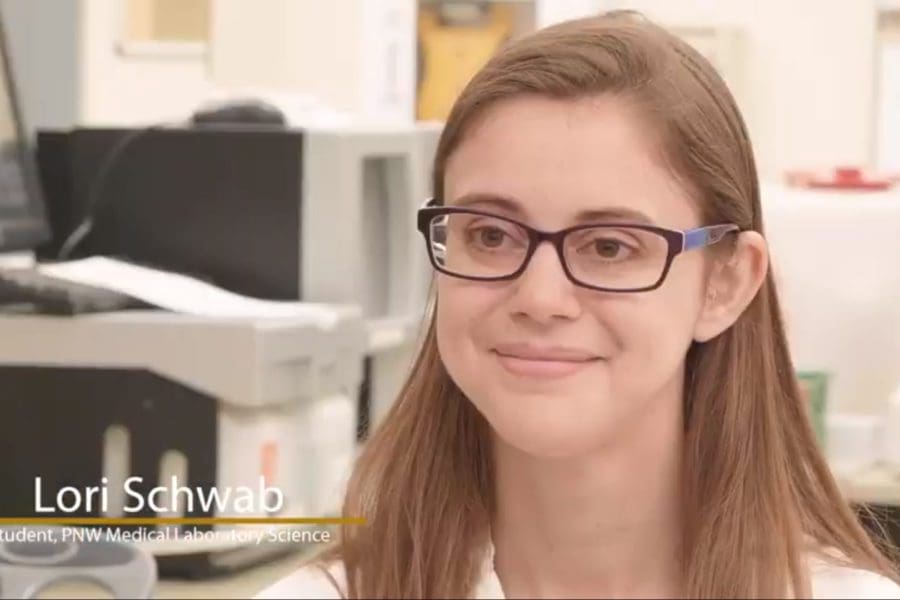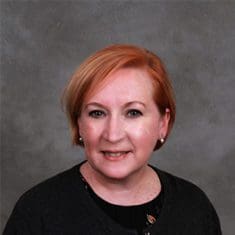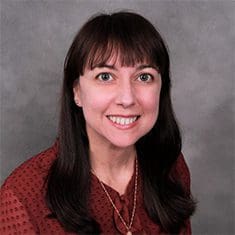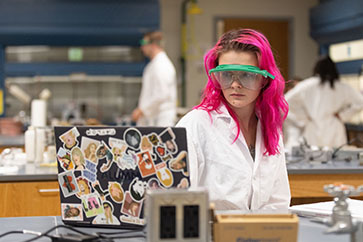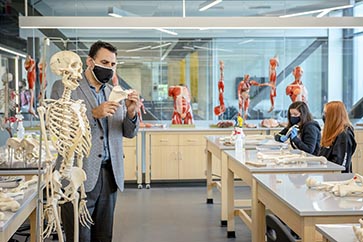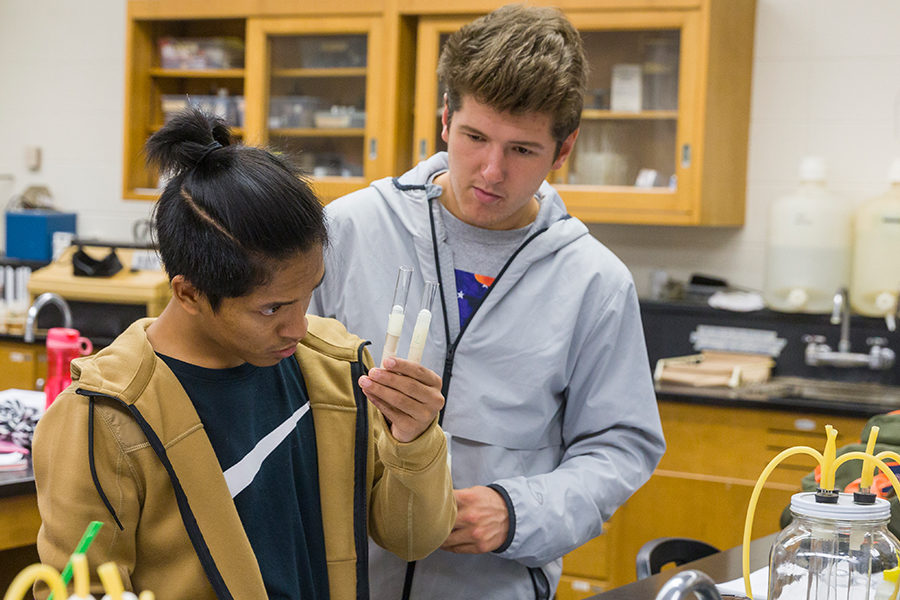
Bachelor's Degree in Medical Laboratory Science
Bachelor of Science
Request Information
Medical Laboratory Science Degree Program Overview
Medical technology, or medical laboratory science, involves the clinical tests necessary to evaluate health and diagnose and treat diseases. Certified medical laboratory scientists work in clinical labs in settings as varied as healthcare, research, public health, forensics, teaching and the pharmaceutical industry.
Purdue University Northwest’s medical laboratory science degree program prepares students for careers in clinical laboratory work, research, public health, forensic work and the pharmaceutical industry.
Department of Biological Sciences
The program provides a rigorous background in biology, chemistry and other sciences. This foundation guarantees a high likelihood of acceptance into fourth-year clinical training with regional hospitals.
With this degree, you can become a certified laboratory scientist in only four years and graduate with immediate employment opportunities.
Medical Laboratory Science Curriculum
As a medical laboratory science student, you’ll take a balance of general education courses, College of Engineering and Sciences core courses and courses in microbiology, immunology and chemistry.
The medical laboratory science degree is a 3+1 program. The first three years (88 credits) of coursework provide a solid foundation in science and all general education courses required for a bachelor’s degree. In your fourth year, you’ll complete 32 credits of clinical training in an affiliated hospital.
Develop a foundational knowledge of key concepts in biology and learn essential lab skills.
Sample Courses
- BIOL 10100 – Introductory Biology
- BIOL 10700 – Freshman Experience In Biological Sciences
- CHM 11500 – General Chemistry
Complete 80 percent of the required core in biology in your second year.
Sample Courses
- BIOL 31600 – Basic Microbiology
- CHM 25500 – Organic Chemistry
- CHM 25501 – Organic Chemistry Laboratory
Finish your PNW coursework and apply for admission to next year’s clinical program at affiliated hospitals.
Sample Courses
- BIOL 24400 – Genetics
- PHYS 22000 – General Physics
Complete your clinical work and take the national exam to become a certificated medical laboratory scientist.
Sample Courses
- BIOL 34200 – Biological Science Practicum
- BIOL 34200 – Biological Science Practicum
Medical Laboratory Science Degree Program Highlights
In this program, you’ll get advanced training with state-of-the-art clinical equipment for specimen, protein and DNA analysis.
Over 90 percent of our students are hired immediately upon graduation. Labor statistics predict a 13 percent increase in jobs in this field from 2016 to 2026, compared to 7 percent for all other occupations.
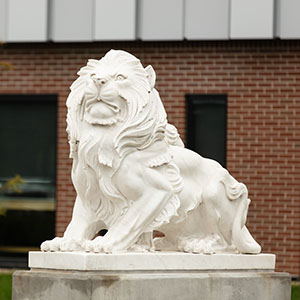
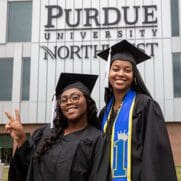
Medical Laboratory Science Degree Program Outcomes
Upon completion of the program, you can take the national exam administered through the American Society for Clinical Pathology to become certified as a professional medical laboratory scientist (MLS). This accreditation is recognized nationally and internationally.
Medical Laboratory Science Degree Program Career Paths
Trained and certified medical laboratory scientists have career choices in:
- Clinical laboratories, research, forensics or public health
- Education
- The pharmaceutical industry
Medical Laboratory Science Degree Program Beyond the Classroom
As an MLS student, you’re encouraged to participate in undergraduate research, pursue internships, volunteer in the community and join student clubs or organizations.
Medical Laboratory Science Degree Program Employers
Graduates of this program are employed in organizations and companies like:
- Community Healthcare Systems
- Franciscan Health
- Alverno Laboratories
Medical Laboratory Science Degree Program Scholarships
Students in this program can apply for a scholarship from the American Society for Clinical Pathology.
Medical Laboratory Science Degree Program Accreditation
Clinical training sites for this program are certified by The National Accrediting Agency for Clinical Laboratory Science.
Meet the Faculty
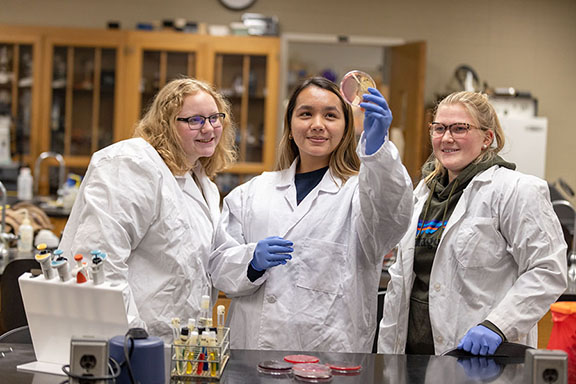
Earn a Bachelor's Degree in Medical Laboratory Science at PNW
Purdue University Northwest’s medical laboratory science degree program prepares you to become a certified medical laboratory scientist by incorporating a year of clinical training at one of our four affiliated hospitals into your course of study.
To see how a bachelor’s degree in medical laboratory science from PNW opens doors, from clinical laboratories to the pharmaceutical industry, take the next step today!
